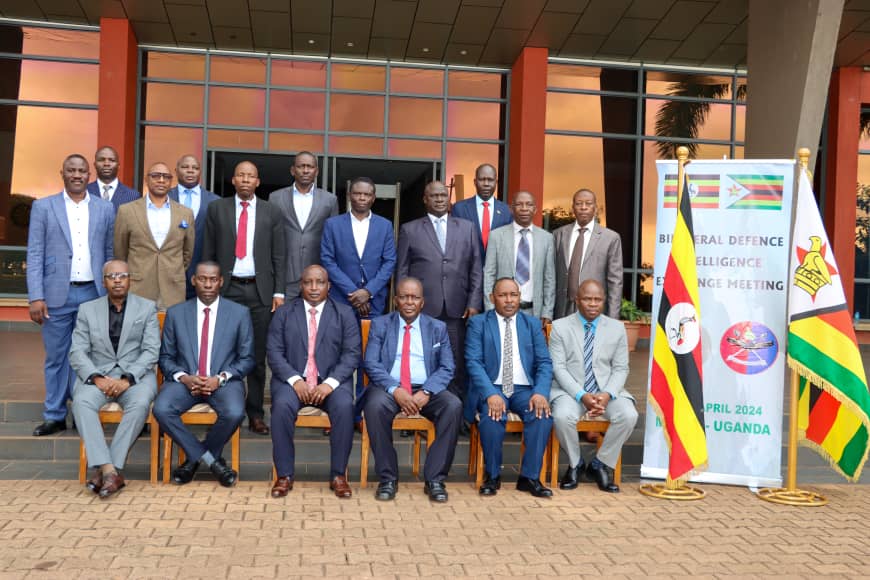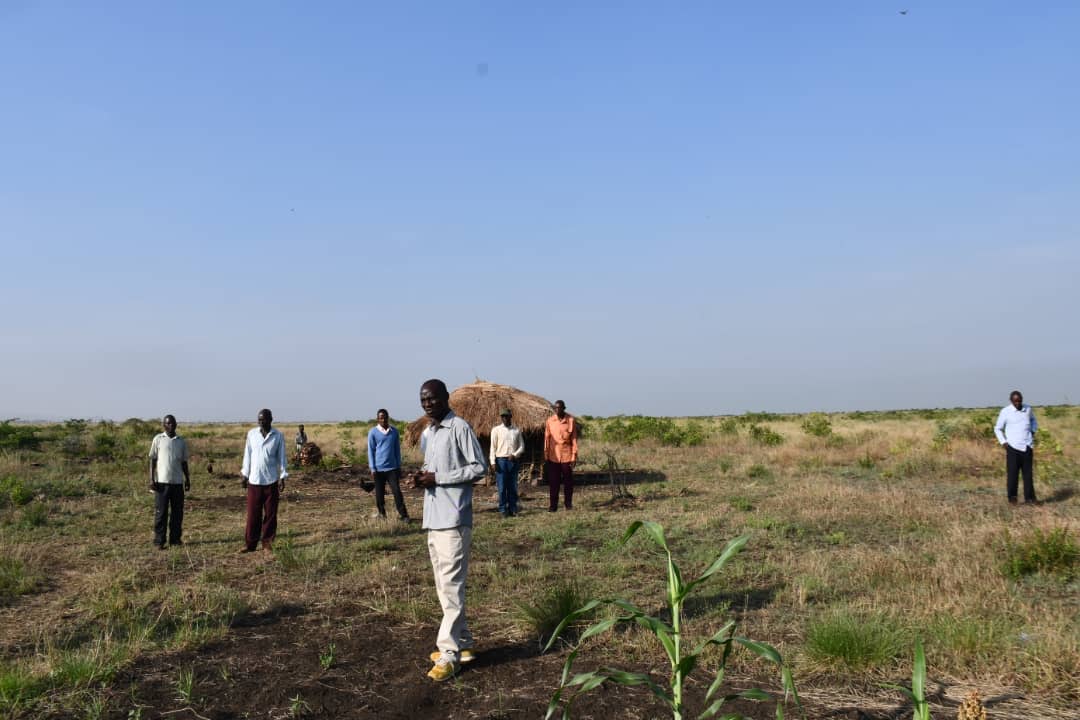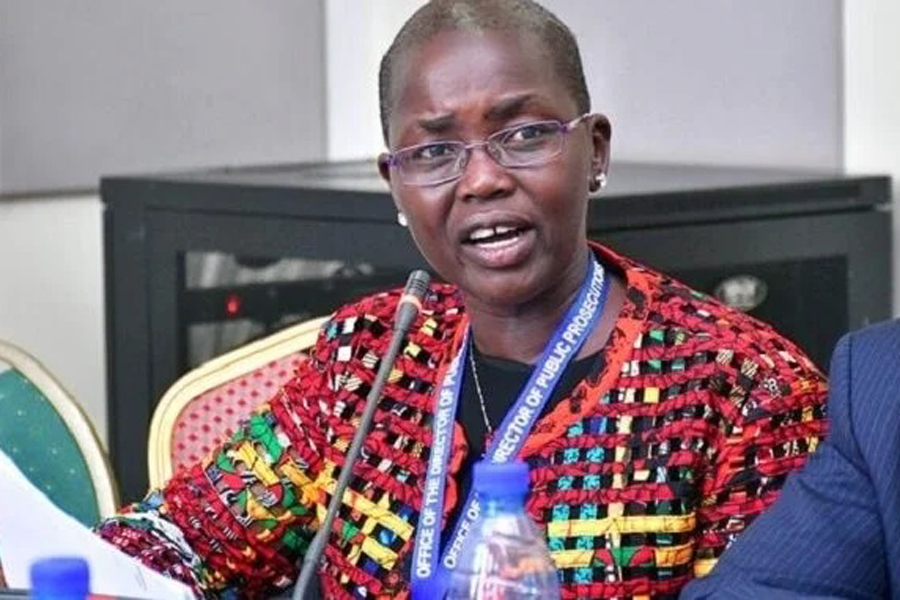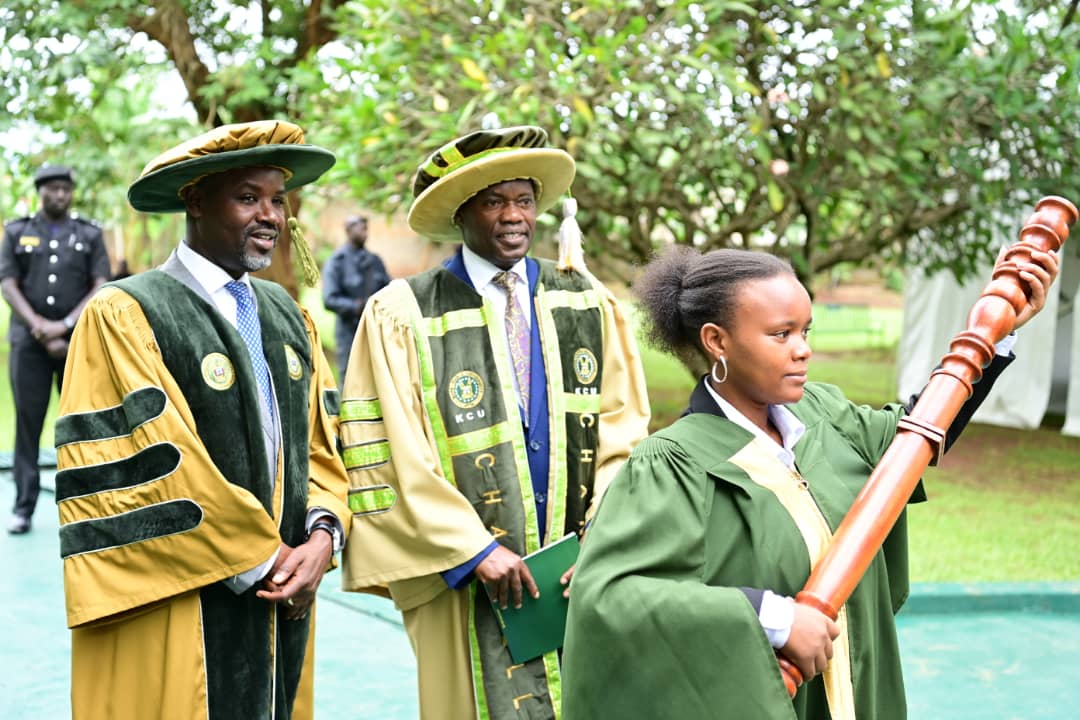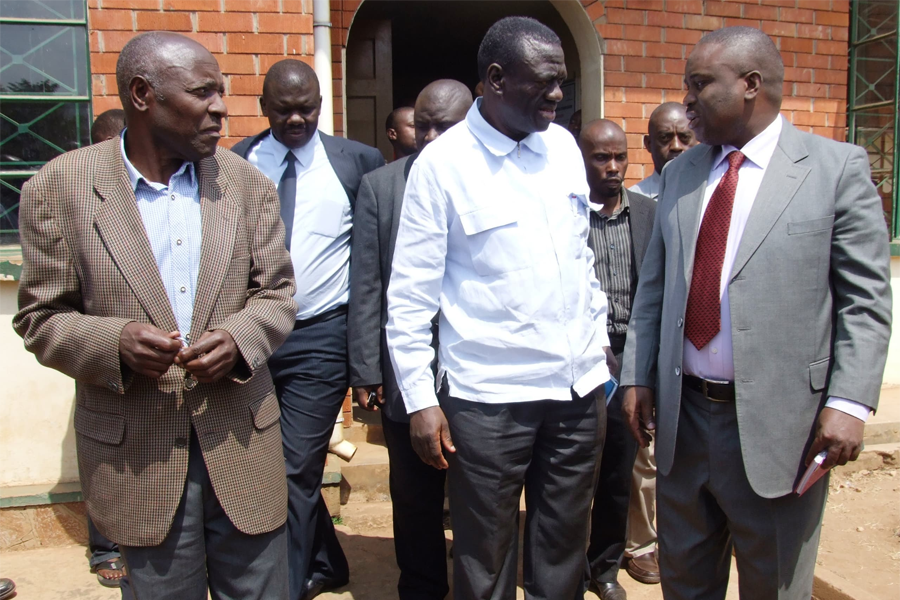Ugandans urged to embrace climate smart agriculture to avert decline in GDP
DEO WALUSIMBI
Agriculture has for several years, formed Uganda’s economy backbone.
The sector’s contribution to Gross Domestic Product (GDP), stands at 24.03% as per 2020 (https://www.statista.com/statistics/447716/uganda-gdp-distribution-across-economic-sectors/)
Agriculture, also has significant linkages to other key sectors such as water, forestry, energy, health and the environment.
Despite its importance, agriculture which is already in trouble in many aspects, faces looming threats-rooted in rapid climate change that if not urgently fixed, will pose catastrophic danger to Uganda’s economy.
At 45 million people now, coupled with growth rate of 3% annually, Uganda’s population is projected to hit 75 million by 2040. However, if the rate of high temperatures Uganda is experiencing continues unabated, Uganda’s temperatures are likely to fluctuate at an alarming level, according to Kenyan-based Scientist, Climate-Smart Agriculture expert, John Recha.
Recha revealed that Uganda’s temperatures are projected to increase by 2 Celsius by 2030 and 3 Celsius by 2050, far from 1 Celsius on which temperatures grew between 1961 and 2005 based, according to Uganda Metrological Authority.
The abnormal temperature increase is likely to translate into “far-reaching consequences beyond what we are witnessing as a result of the 1C temperature increase.”
Recha said owing to shifts in rainfalls, length of crops’ growing season is “going to reduce-meaning, if in the 1960s, rains were 120 days [4 months], it is going to reduce to like 3 and half months or 3 months in the future.
Recha warned of more regularity of droughts and more hard-hit areas in both arid and semi-arid areas and that wind patterns will increase flooding incidents “because of high intensity of rainfall in a short period.”
The critical problem, temperature increase will breed therefore, would be food insecurity for Uganda’s growing population considering that it doesn’t favour crops’ growing because such weather condition creates an enabling environment for thriving of these diseases and pests that affect different crops.”
A May-2021 report by Global Food Security Index ranked Uganda 95th behind Kenya (86th) and Tanzania (89th) out of 113 countries assessed in food security (2020).
Because people spend much of their incomes on procuring food where there is no stable food production and supply, the projection that limitative rising temperatures are likely to exert a toll on Uganda’s GDP are inevitable.
To sustain growing population and facilitating GDP growth, Recha recommends for “investment in ensuring food and nutrition security. Otherwise, less investment into this means GDP may shrink to a growth of even less than 2% or 1% in the future which is a mismatch between GDP and population growth, leading to a problem-country becomes net food importer.”
Largely owing to COVID-19-induced disruptions, World Bank reported, the economy grew by 3% in FY2020/21 lower than projected 6.5% growth.
Adaptation
Recognizing negative effects of climate change, SNV, the Netherlands Development Organization weighed in with Climate Resilient Agribusiness for Tomorrow (CRAFT) project in 2018.
The five year worth €36M project seeking to address climate change-related challenges in Uganda, Kenya and Tanzania, is materialized with support from Netherlands Ministry of Foreign Affairs in partnership with Wageninge University & Research, Climate Change, Agriculture and Food Security, CCAFS, Rabo Partnerships and Agriterra.
According to Bashir Kasekende, Country Project manager also acting Agriculture sector leader at SNV-Uganda, the project works with multifaceted stakeholders from private and public sector to implement interventions that promote increased productivity for food security.
Kasekende said the project is anchored on three objectives: increasing income for smallholder farmers and SMEs; increasing business performance for agribusiness SMEs and cooperatives due to climate change-related investments, and improving enabling environment favorable for large-scale roll-out-of CSA.
He explained that those objectives will be achieved through increased adoption of climate smart agriculture practices and technologies among smallholder farmers, SMEs and cooperatives.
Kasekende said there is also need for increased investments and business growth in climate smart value chains, increased involvement of women and youth agribusiness development and increased collaboration and exchange among public-private actors on large scale roll-out-of climate smart agriculture practices and technologies.
Accordingly, CRAFT organized a 3-day learning event through which they brought together 110 stakeholders drawn from across all regions of Uganda between 1st-3rd December, 2021 at Nyaika Hotel in Fort Portal tourism city.
Prodded on why they organized a large-scale event attracting 75 males and 35 females, Kasekende said: "We wanted to bring together all the partners we work with countrywide to create space for us to learn and share knowledge on the different CSA practices and technologies."
Graced by facilitators from Uganda, Kenya and Netherlands, participants had the opportunity “to reflect on what has worked well, share lessons learned, identify areas of improvement and build synergies for more collaborations since 2018” at project’s inception.
To effectively implement it, CRAFT works with varied business champions including Okeba-Uganda, Alito, Acira, PKWI farmer-to-farmer cooperative who interact with smallholder farmers every day.
Leaders of business champions glorified CRAFT’s assistance to them.
They testified-since 2018, when CRAFT joined them, they attained trainings on climate smart agriculture practices and technologies, they used skills to train trainers-of-trainees, introduced them to weather information projections and weather-index insurance, widened their business partnerships, procured them tractors, vehicles, which they say, has enhanced farmers’ livelihoods, etc.
"CRAFT enabled Okeba-Uganda to procure some useful assets like tractors, vehicles which have facilitated us to reach more farmers on top of training our management staff in business skills, farmer-field school and CSA practices and technologies," Aliganyira Nezaphor, project manager, Okeba-Uganda, said.
He said the learning event helped them to “pick more lessons and experiences and opportunity to market ourselves more.”
Before CRAFT came on board, Norah Asiyo, General Secretary, Popular Knowledge Women’s Imitative Farmer-to-Farmer Cooperative Society Limited (P’KWI) which focuses on growing and processing sunflower into “virgin” oil in Bukedea district, said they were doing business as usual. They grew crops without adopting CSA practices and technologies.
But after “CRAFT intervened, they introduced us to weather information projections and weather-index insurance and they support us with 50% payment of premium.”
She applauded CRAFT for the learning event, saying it has “enlightened my thinking much more-I have garnered more learning. I have learnt that data management is key for us-business champions because it helps to know what is happening in our agribusiness and with data, we shall know whether we have inclusion of gender-women and youth or not.”
Grace Kalembe, the underwriter at Agriculture Insurance Consortium, appreciated CRAFT for learning event helped them to “reach out to key people who are in direct contact with farmers.”
Kalembe explained that insurance caters for pests and diseases, weather-related risks-floods ad all production risks. They have poultry, piggery, aquaculture and livestock insurance covers.
The ministry of Agriculture said the sector’s strategic plan spells out direction focusing on increasing agricultural production and productivity, increasing access to critical farm inputs, improving agricultural markets, value addition and service delivery, withal require financial resources.
"As a Ministry, we need partners to fully implement all those strategies in order to effectively address the challenges that are affecting the sector and hindering its full potential,"Cyprian Ssekubulwa from MAAIF, acknowledged.
He appreciated “complementary roles” by different actors geared on agricultural value chain which significantly contribute to interventions aimed at developing and increasing Uganda’s economy.



